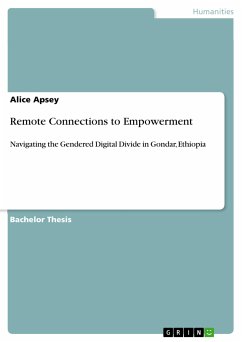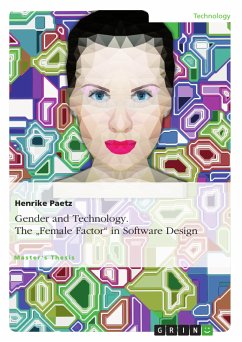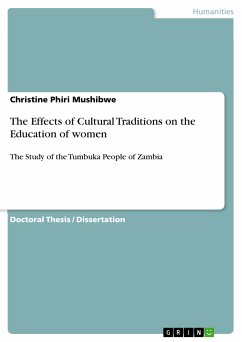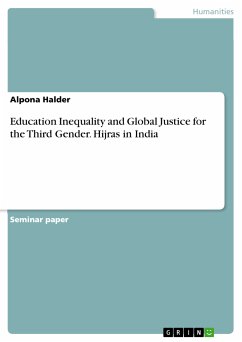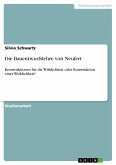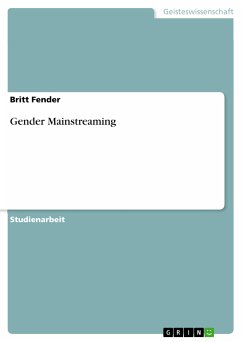Bachelor Thesis from the year 2014 in the subject Gender Studies, grade: 1st Class with Distinction(93%), University of Cambridge, course: BA Geography - Gender and Development, language: English, abstract: Whilst the development of ICTs in Ethiopia has proved in many instances to be a promising tool for women's empowerment, a "complex web of factors" (Buskens & Webb, 2008) that determine access to these facilities has caused the scope of their benefit to be limited. In Ethiopia, engagements with ICTs in education and society continue to show a marked gender gap. To identify the obstacles to ICTs faced by women, the focus of analysis must extend beyond women themselves. Hence, this research has taken a multi-perspective approach, sampling a diverse range of respondents including men, women, youth, University students, IT professionals and government officials. This cross-section was taken from Gondar Town in the Amhara Region of Northern Ethiopia in order to situate the gendered barriers to ICT amongst a broader social, cultural, economic and political landscape. Therefore, since “ICT usage represents a social reality” (Wood, 2001: paragraph 5.7), “a gender lens alone becomes insufficient: other forms of social exclusions […] have to be considered” (Rowbotham, 1995:65, Morgan, Heeks & Arun, 2004).
Bitte wählen Sie Ihr Anliegen aus.
Rechnungen
Retourenschein anfordern
Bestellstatus
Storno

